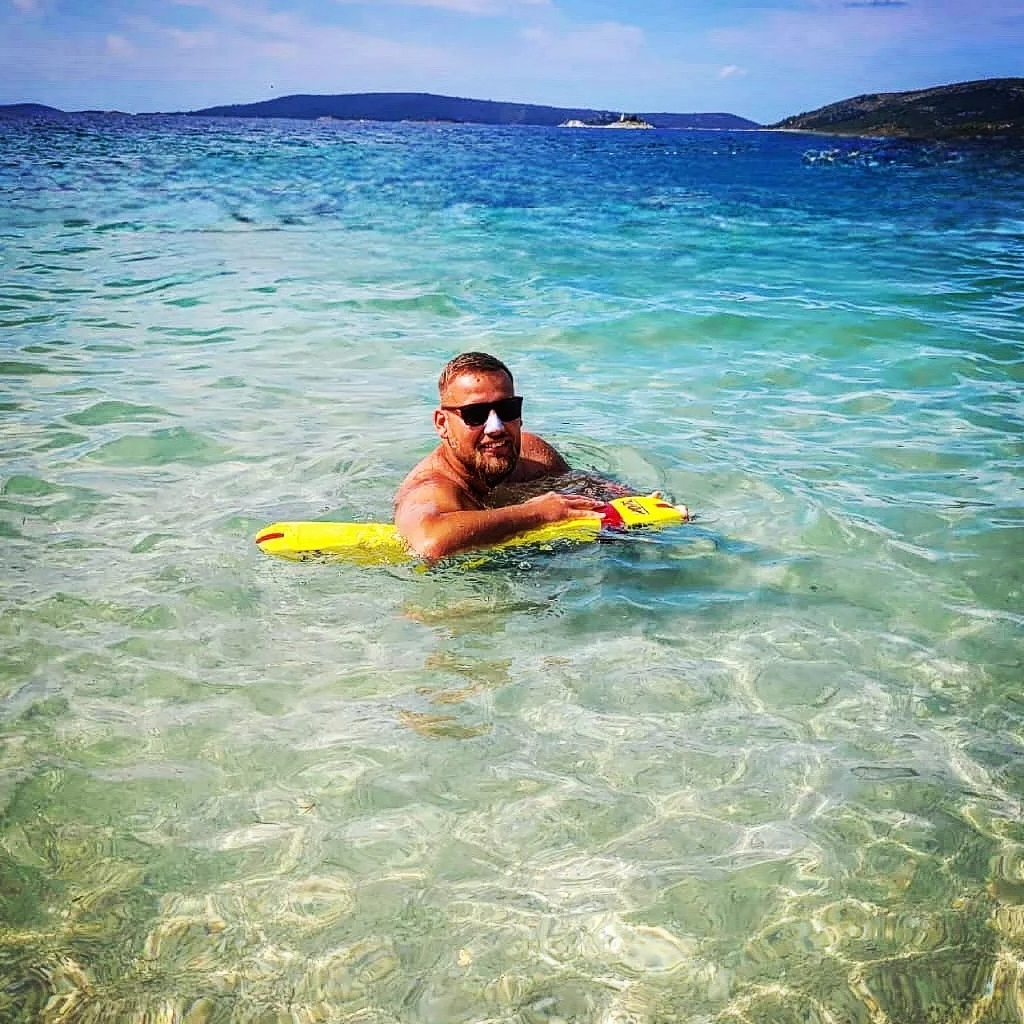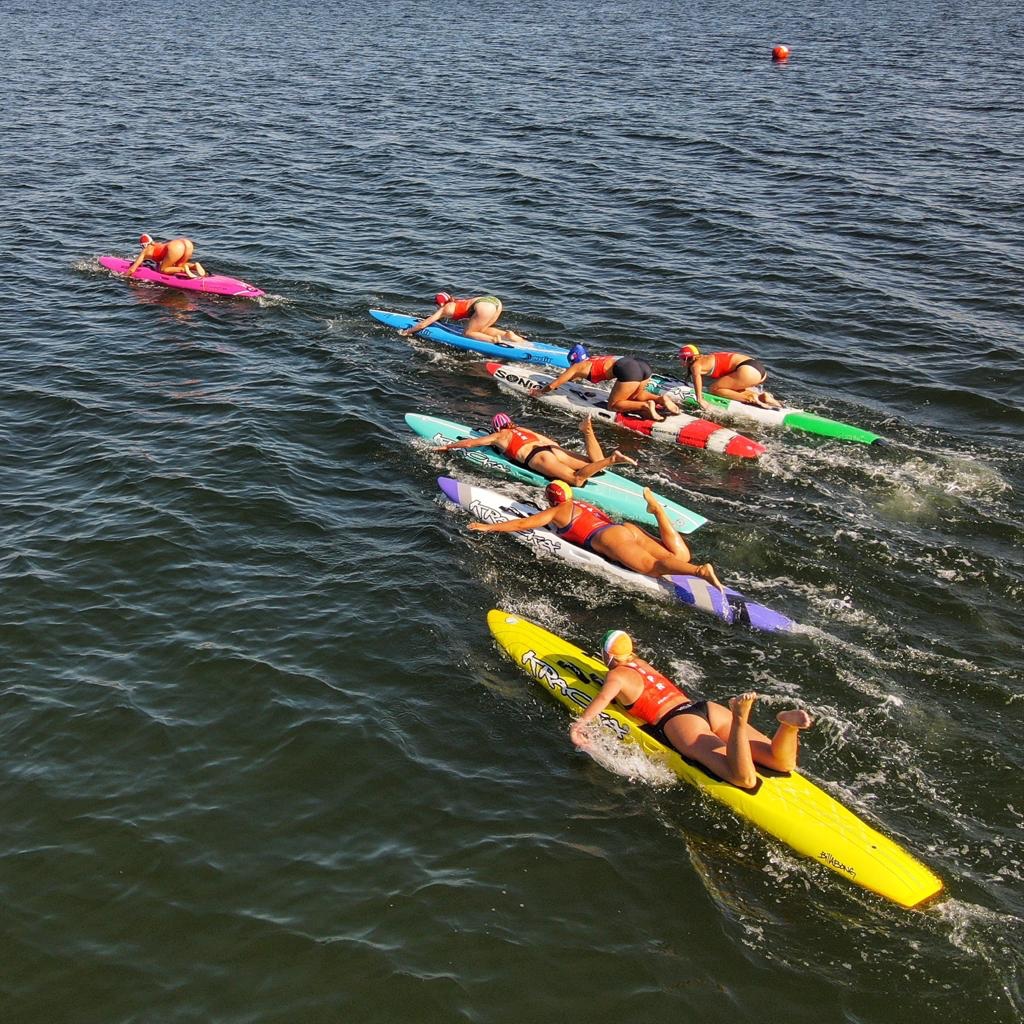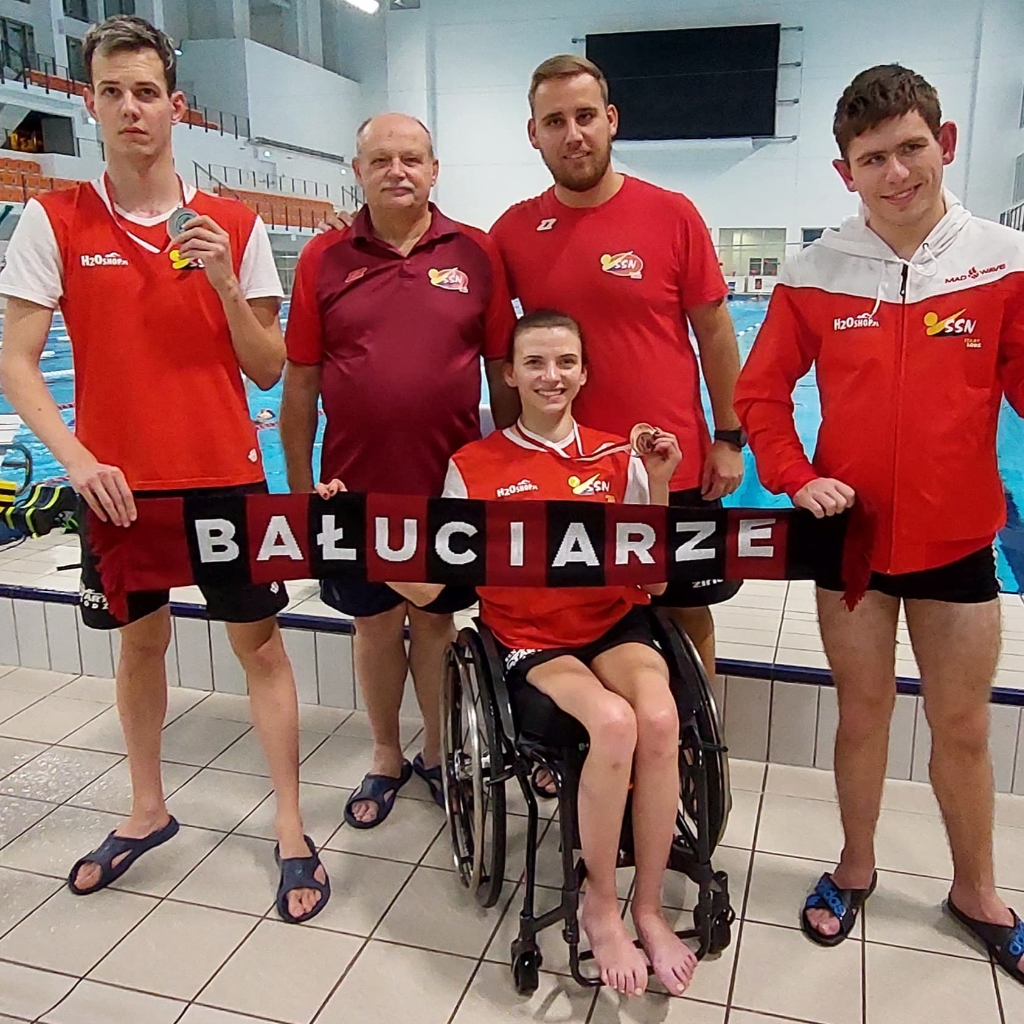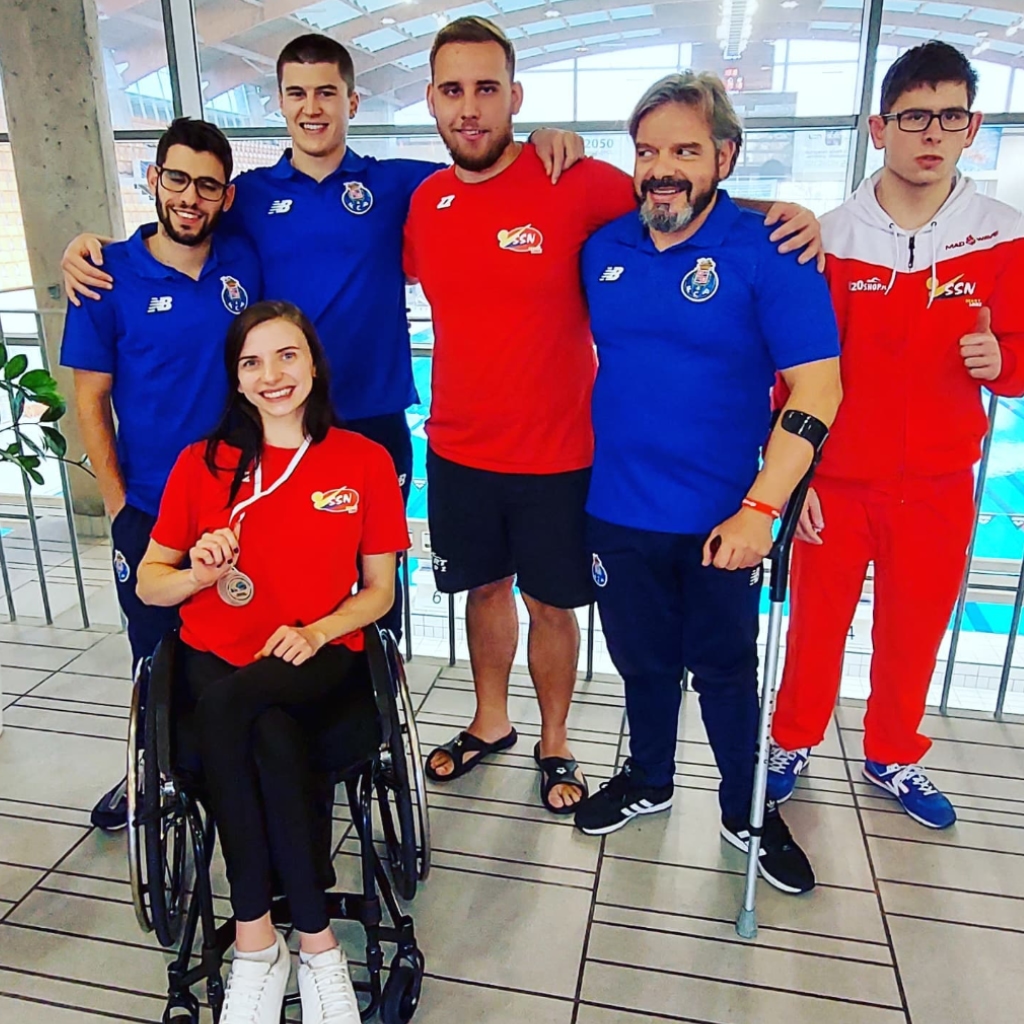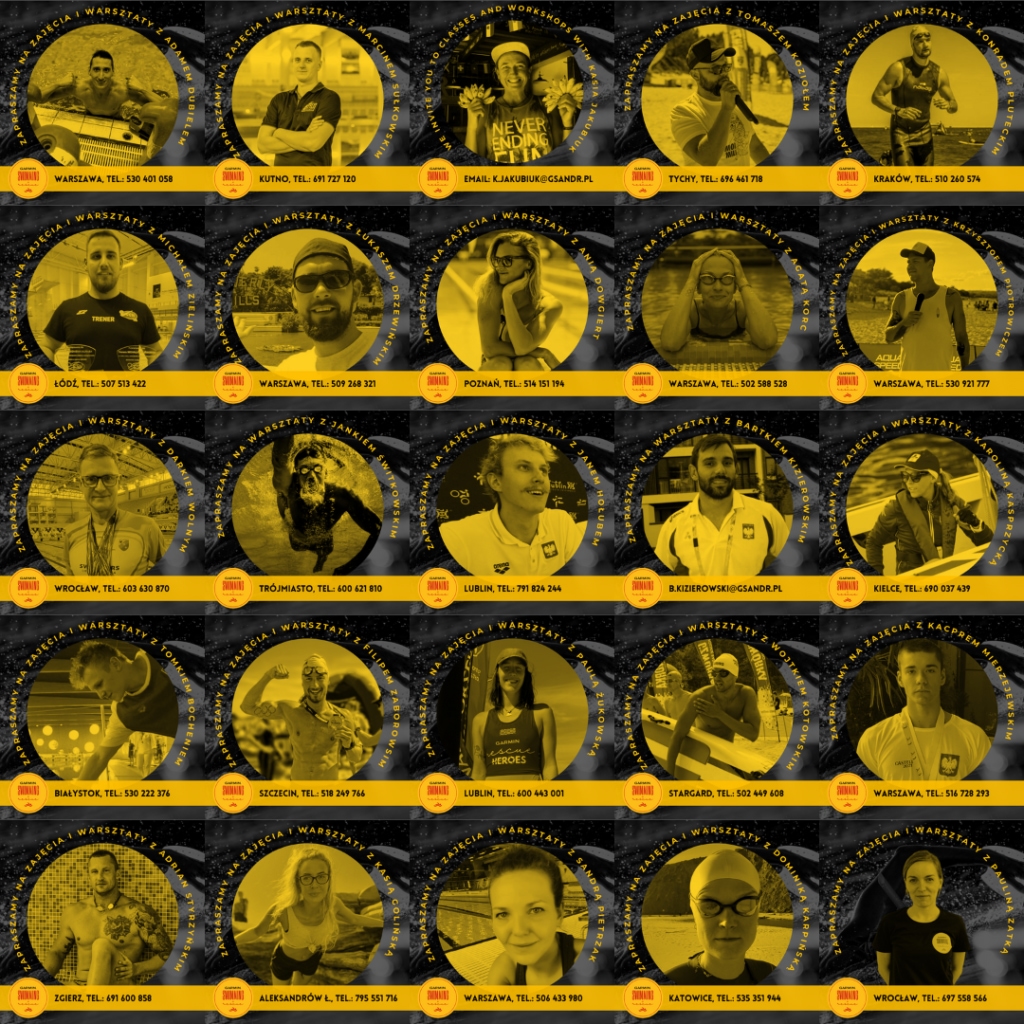The growing popularity of water activities as one of the best ways to maintain health and physical fitness is driving more people to learn and improve their swimming skills. This, in turn, increases the demand for the services of qualified instructors and lifeguards who can share their expertise in the safe and effective use of water’s benefits. But where can one learn the trade, gain experience, train, and verify skills to later share knowledge with passion and dedication?
We spoke with Michał Zieliński—an experienced marine lifeguard, coach of swimmers with disabilities at the SSN START Łódź team (Swimming Section for People with Disabilities), and, as of this season, coach of the Garmin Swimming & Rescue team!
Coach and Instructor at Garmin Swimming & Rescue
You’re one of the coaches and instructors for Garmin Swimming & Rescue. Why did you decide to join this project?
Water is my life; water is me, and the pool is my second—if not my first—home. Sometimes I joke that I must have been born in water [laughs]. I’ve been connected to water sports since I was a child. Initially, I trained in swimming, and at the age of 14, I completed a course to become a junior lifeguard. After turning 18, I transitioned to water polo. During that shift, I also tried my hand at competitive water rescue.
Now, I’m a swimming coach and instructor, as well as a lifeguard trainer. Since completing my lifeguard certification, I’ve spent 15 years working on the beach in Władysławowo. This year, for the first time, in addition to working in the Władysławowo-Chłapowo area, I had the opportunity to serve on the beach in Pobierowo. It was a new and very interesting experience for me.
The answer to your question seems to come naturally. In a way, the GS&R project brings together over half of my life into one cohesive whole. It felt entirely natural for me to reach out, talk to the association’s management, and join the project to contribute a part of myself to this initiative.
How to Become a Lifeguard?
Can anyone become a lifeguard? How should you prepare and learn?
I don’t think so. It’s a very responsible job, often highly stressful, and unfortunately—at least in my opinion—it’s treated quite casually in our country. I don’t think I’m exaggerating when I compare it to working in uniformed services. You might end up working at a small hotel pool and have “peace and quiet” for years. In such a case, it’s crucial not to fall into complacency.
On the other hand, you might find yourself working on a beach in a busy resort, where a lot is happening, and you may even encounter life-and-death situations. I highly recommend reading "WOPR – Życiu na ratunek" by Dawid Góra, where you can get a real sense of what water rescue entails. I also had the opportunity to share my story in that book.
Being a lifeguard requires more than just swimming skills. You need to complete a Qualified First Aid Course. Additional certifications, such as a skipper's license or diving qualifications, are also advantageous. This job combines many different skills, and while swimming is essential, it’s just one component. Those who have been connected to water or water sports from a young age and know how to swim often have an advantage when enrolling in a lifeguard course.
Time, dedication, hard work, a desire to learn, listening to more experienced individuals, and having basic swimming skills (at least in three styles) are all you need to become a lifeguard. I believe that everything can be trained.
Swimming is Joy for Everyone
You have experience training swimmers with disabilities. Are lifeguards in Poland prepared to work with this group of swimmers?
Absolutely. A lifeguard must always be ready for any situation. I work with swimmers with disabilities in the SSN START Łódź club. Disabilities are no longer a taboo topic, and people with disabilities often strive to be self-reliant. In such cases, the role of the lifeguard is simply to assess their needs and provide assistance if necessary.
When planning infrastructure, considerations for people with disabilities are now standard. For example, at the Zatoka Sportu facility at the Lodz University of Technology, where we train, there’s a special wheel lift that allows individuals to be placed in the water at any location and removed afterward. Lifeguards undergo specialized training on how to operate this equipment during their rescue training sessions. When specialized equipment isn’t needed, it’s enough to notify the lifeguard or ask for assistance—they’re always ready to help.
Visiting various sports facilities and traveling across the country for competitions, I’ve observed lifeguards’ readiness and the preparedness of facilities to accommodate people with disabilities. For instance, coastal bathing areas have dedicated paths for wheelchair users, with specially adapted walkways extending to the shoreline. Lifeguards in the Tricity area have specialized beach wheelchairs that facilitate movement on sandy beaches.
What’s more, these wheelchairs can even be used to enter the water. Lifeguarding is undoubtedly aligned with supporting people with disabilities.



